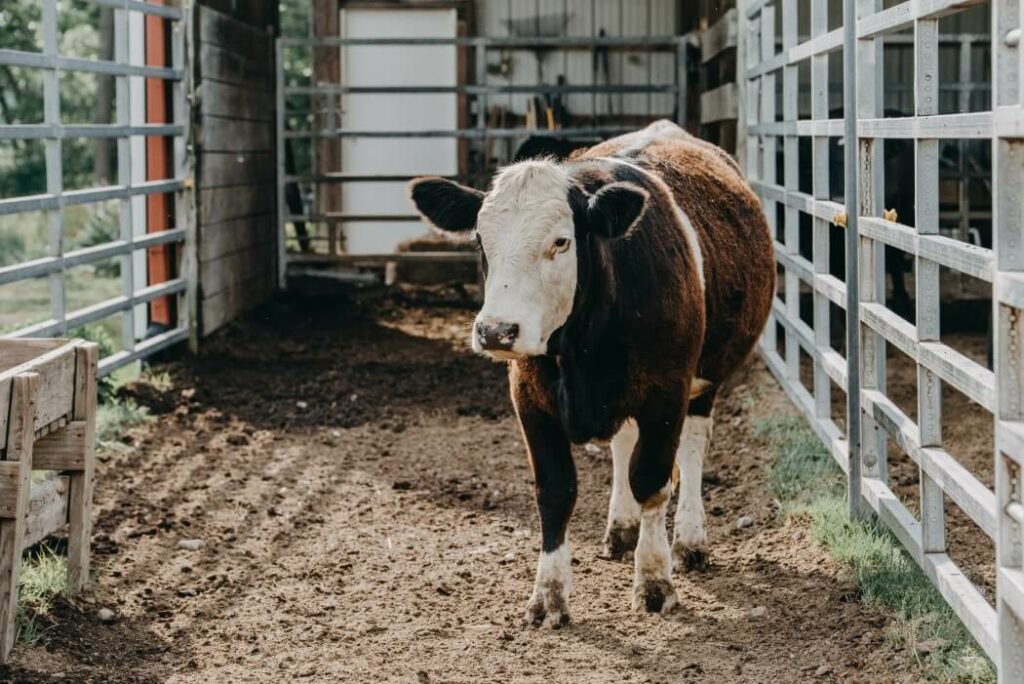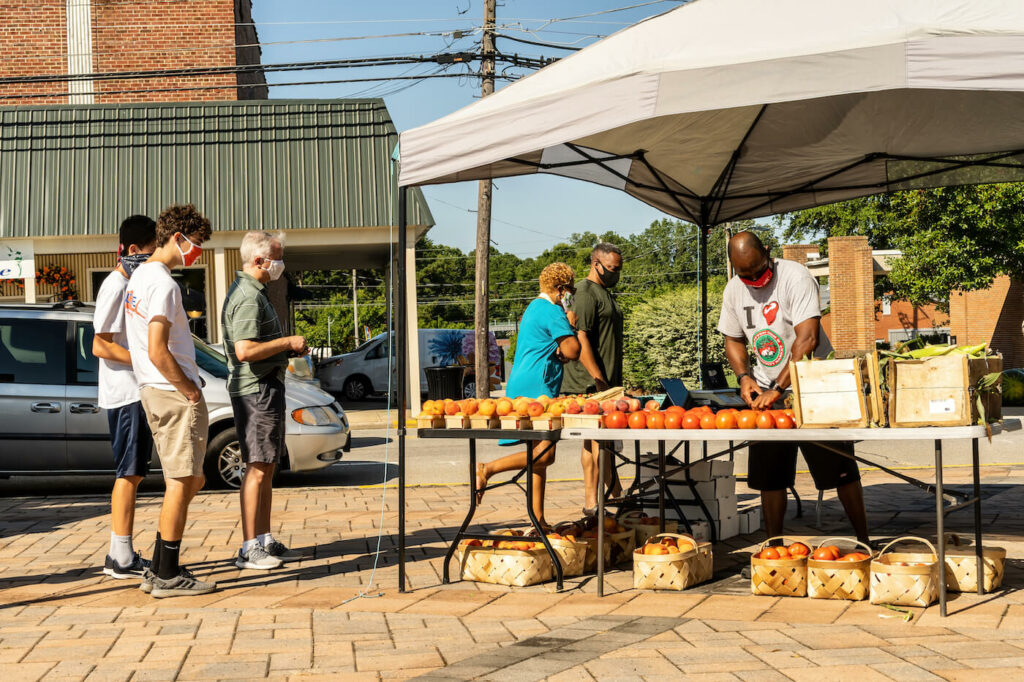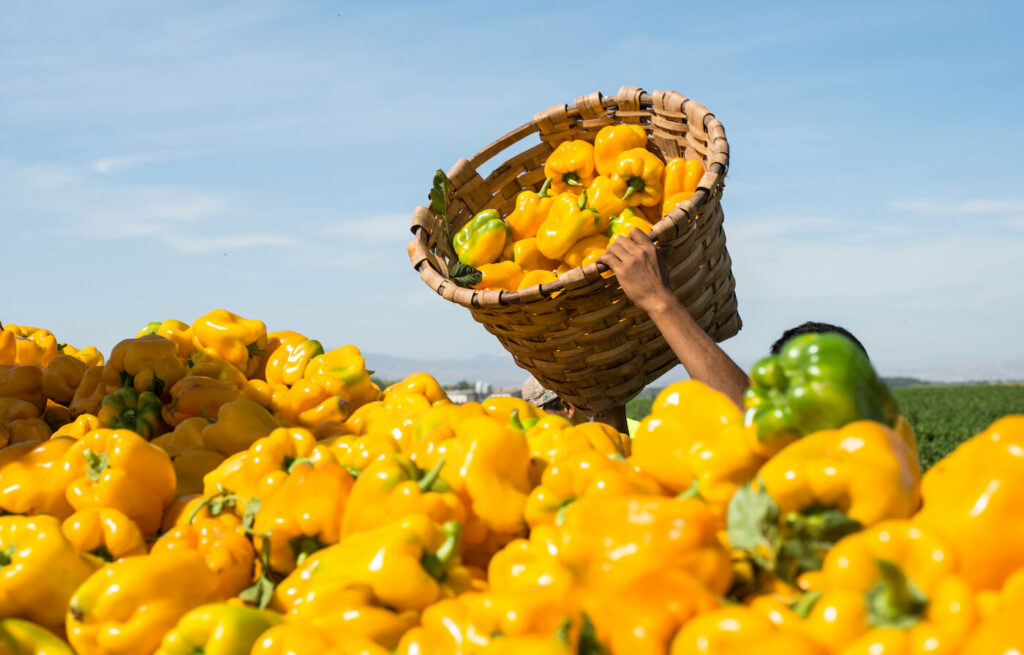Building Bold Futures: Key Themes for 2025 State Legislatures
Building Bold Futures: Key Themes for 2025 State Legislatures

No matter who holds power at the federal level, the majority of policymaking happens in the states. In many states, legislators have spent years working to beat back Project 2025 priorities that extremists are actively field-testing. But defensive work alone won’t win us the future. We must also build a bold affirmative vision that centers care for working families and advances justice in all states– in all constituencies and all communities — rural, urban, and suburban.
SiX is dedicated to empowering state legislators to lead boldly with their communities and make transformative changes. We have a decade of success supporting state legislators by addressing their governing needs and helping them organize with their communities.
After the election, SiX invited legislators from our network to share their priorities for the 2025 legislative session. Legislators shared plans spanning diverse political contexts, including harm reduction through community-based approaches, strengthening bipartisan relationships, and bold initiatives on racial equity, immigrant justice, reproductive rights, taxes, climate change, worker power, and anti-monopoly reform.
And at SiX’s National Conference in December 2024, state legislators and movement leaders reflected on what the election results mean for the future of state governance and discussed the work ahead in the mainstage panel, “Election Reflections and Charting a Path Forward Together.” You can watch the plenary here.
As we prepare for 2025 state legislative sessions, here are trends we’re anticipating:
Economic Justice
Building economic power for working families is essential to all of our organizing power efforts. These must center racial, gender, and immigrant justice while building class solidarity across racial and ethnic lines, immigration status, and geographies. In doing so, we’re strengthening a common thread through all topics and communities: economic justice.
Progressive economic policy measures won across the country this election, from paid leave to raising the wage, to the right to organize, abortion rights, and getting big money out of our politics. Efforts to roll back our progress failed too– voters protected public education in every state with a private school voucher measure on the ballot. Similarly, efforts to repeal state capital gains tax and climate programs also failed. With these electoral victories, we’re anticipating legislators will feel emboldened to introduce additional progressive economic policy measures.

States are the frontlines for building worker power and protecting consumers from corporate monopolies rigging the economy to their advantage. They’ve protected workers’ rights to organize and collectively bargain, leveraged public dollars to build a good-jobs economy, stopped anti-competitive corporate mergers and safeguarded workers and consumers from abusive AI, junk fees, and non-compete agreements. But there are still countless opportunities for state legislators to build economies that advance tangible gains for working families, empowering them to pass local laws that meet their needs and defend local freedoms.
Budgets are an essential responsibility of state legislators. Every year, legislatures approve trillions in public spending. Budgets also reflect a state's values and priorities, and can be a powerful tool to advance justice and secure meaningful, material gains for working families. State budgets were already expected to face shortfalls in 2025 as pandemic-era federal dollars conclude, and automatic tax cuts threaten state budgets. However, with the advancing Trump administration, the possibility of completely eliminating federal public programs, grants, and jobs is real– alongside a punitive federal government that could target and scapegoat states that don’t align with the federal agenda.
For a deeper dive into how federal and state budgets interact with each other and how states can lead in 2025, legislators and staff are invited to the “State Budgets: Threats and Opportunities in 2025” briefing on January 23, 1-2 pm. Organized with the Center for Budget & Policy Priorities, the Institute on Taxation and Economic Policy, and the State Revenue Alliance, this meeting will overview federal and state budget interactions, contributions to state budgets, and the influence of legislators in enacting tax solutions for public education, healthcare, childcare, and retirement access for working families.
Reproductive Rights
As the states approach the third anniversary of Roe v. Wade's reversal, legislatures are gearing up to debate laws that either broaden or restrict access to abortion and reproductive health care. States with strong safeguards for reproductive rights are proposing measures to protect patients and healthcare providers should the new administration roll back abortion policies even further. We anticipate states in more progressive climates to safeguard contraception, medication abortion, and telehealth, as well as introduce further protections to guarantee the right to make reproductive healthcare choices free from government intrusion.

Meanwhile, states with abortion bans are advancing proposals such as fetal personhood laws (a radical legal doctrine that seeks to endow fertilized eggs, embryos, and fetuses with full rights and legal protections), penalties for abortion pill use, and other restrictive measures. After Louisiana passed a law last year classifying mifepristone and misoprostol controlled substances, other states, like Texas, are introducing similar measures.
Restrictive measures aren’t simply targeted at abortion access. The state legislators seeking to restrict abortion access are setting their sights on limiting access to minors, whether through constraining travel for health care, including gender-affirming care or imposing unnecessary parental notification.
And still, other states are prioritizing improving maternal healthcare, especially for communities of color and rural populations. Michigan's Senate advanced the "Momnibus" package to address maternal health disparities, including a bill requiring reports of obstetric racism and another protecting reproductive health data. In Virginia, lawmakers plan to expand Medicaid and offer remote monitoring for high-risk rural patients. Kentucky is pushing for postpartum insurance coverage, diversifying medical teams, and increasing access to doulas, while California proposes reimbursing alternative birth centers under Medicaid. Texas is considering initiatives to combat its "maternity care deserts," where nearly half of counties lack maternity services, exacerbating pregnancy complications.
Legislators and legislative staff are invited to join us for our next Rapid Response Room meeting – a virtual space for state lawmakers and staff to collaborate as they work on reproductive health, rights, and justice laws in their states on January 13, 12 pm. Professor Zakia Luna PhD, MSW will be discussing reproductive rights as human rights. Register here.
Rural, Agriculture & Food Systems
State and federal agriculture and environmental policies are deeply interconnected. States rely heavily on federal funding for climate, agriculture, and food and nutrition programs. A Trump administration alongside a Republican-controlled Congress could lead to significant changes in federal policies, which would directly affect state budgets and state programs.
A Trump administration may prioritize deregulation, cut critical programs, and shift focus to market-driven solutions. This could result in looser environmental protections, such as easing restrictions on industrial animal agriculture, pesticide use, and water quality standards; consolidation of the agriculture sector, benefiting large corporate agribusinesses at the expense of family farms, rural communities, and the environment; and volatility in trade policies and tariffs, creating instability in agricultural markets, potentially increasing costs and reducing export opportunities for farmers.

While federal cuts and policy shifts could present significant challenges, many states have already built the foundations for resilient and sustainable local food systems and healthy rural communities, and we have no doubt that legislators will continue advocating for these solutions to protect the people living in communities that they represent.
States are moving forward with climate-resilient policies to promote regenerative agriculture, soil health, and agro voltaics (solar-powered farming). This will support farmers and ranchers to implement practices that are good for the climate. Similarly, local food infrastructure and procurement policies have been supporting rural economic development, ensuring food security and benefiting independent family farms, and farmer equity programs in many states have resulted in legislators and farmers working together to ensure that the unique barriers farmers of color face are addressed through policy and programs.
Join us in driving real change. Watch and share this video on SiX’s agriculture and food systems work today!











